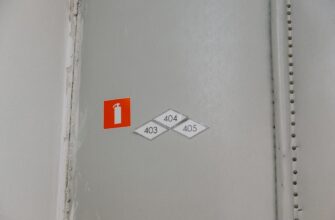## Introduction: Understanding Airdrop Taxation in India
With the rise of cryptocurrency, airdrops – free distributions of tokens – have become popular in India. But many recipients overlook a critical fact: **airdrops are taxable income** under Indian law. Failing to report them correctly can lead to penalties from the Income Tax Department. This guide explains how to legally declare airdrop income, calculate taxes, and avoid common pitfalls.
## What Are Airdrops and Why Are They Taxable?
Airdrops involve receiving free crypto tokens, often as promotional rewards, forks, or community incentives. In India:
– The Income Tax Act treats airdrops as **”income from other sources”** (Section 56).
– Taxability applies regardless of whether tokens are sold or held.
– The Central Board of Direct Taxes (CBDT) clarified in 2022 that virtual digital assets (VDAs) like crypto fall under taxable income.
## When Must You Report Airdrop Income?
Timing is critical for compliance:
1. **At Receipt**: Income is taxable in the financial year (April-March) when tokens land in your wallet.
2. **Valuation Date**: Use the fair market value (FMV) in INR **on the day you receive tokens**.
3. **Threshold**: No minimum exemption – even small-value airdrops must be reported.
## Step-by-Step: Calculating Tax on Airdropped Tokens
Follow this process:
1. **Determine FMV**: Convert token value to INR using exchange rates (e.g., WazirX, CoinDCX) at receipt time.
2. **Add to Total Income**: Include the FMV under “Income from Other Sources” in your ITR.
3. **Apply Tax Slab**: The amount is taxed at your income tax rate (up to 30% + 4% cess).
*Example*: If you receive 100 XYZ tokens when 1 XYZ = ₹50, your taxable income = ₹5,000.
## Reporting Airdrops in Your Income Tax Return (ITR)
### Documents Needed:
– Wallet transaction history
– Exchange statements
– Screenshots of airdrop details
### Filing Process:
1. **Select ITR Form**: Use **ITR-2** (if only holding) or **ITR-3** (for traders/business income).
2. **Schedule OS**: Declare airdrop value under “Income from Other Sources.”
3. **Capital Gains (If Sold)**: Report profits/losses under Schedule CG using FMV at sale.
4. **File by Deadline**: Submit before July 31 (unless extended).
## 5 Common Mistakes to Avoid
1. ❌ **Ignoring small airdrops** – All must be reported.
2. ❌ **Using incorrect valuation dates** – FMV at receipt, not sale.
3. ❌ **Mixing with business income** – Unless you’re a professional trader.
4. ❌ **Forgetting TDS** – Exchanges deduct 1% TDS on sales; claim credit in ITR.
5. ❌ **Poor record-keeping** – Maintain dated screenshots and transaction IDs.
## Frequently Asked Questions (FAQs)
### Is airdrop income taxable if I never sell the tokens?
Yes. Tax applies upon receipt based on FMV, even if you hold indefinitely.
### How do I value airdropped tokens with no listed price?
Use the value of the parent blockchain token (e.g., Ethereum for ERC-20 tokens) or get a chartered accountant’s valuation.
### Can losses from airdrop sales be offset?
Yes. Capital losses from selling airdropped tokens can offset other capital gains (e.g., stocks, property).
### Do I pay tax twice if I sell later?
No. You pay income tax on receipt value, and capital gains tax only on profits from price appreciation when selling.
### What if I received airdrops before 2022?
CBDT rules apply from April 1, 2022. Pre-2022 airdrops may still be taxable under general income laws – consult a tax expert.
## Penalties for Non-Compliance
– **Late Filing**: ₹5,000/month under Section 234F.
– **Underreporting**: 50%-200% of evaded tax.
– **Scrutiny Risk**: Unreported crypto income often triggers IT notices.
## Key Takeaways
1. Treat airdrops as taxable income at FMV upon receipt.
2. Report under “Income from Other Sources” in ITR-2/ITR-3.
3. Maintain meticulous records of dates, values, and transactions.
4. When in doubt, consult a crypto-savvy CA for complex cases.
*Disclaimer: This guide is informational. Tax laws evolve – verify with official CBDT circulars or a qualified professional.*








